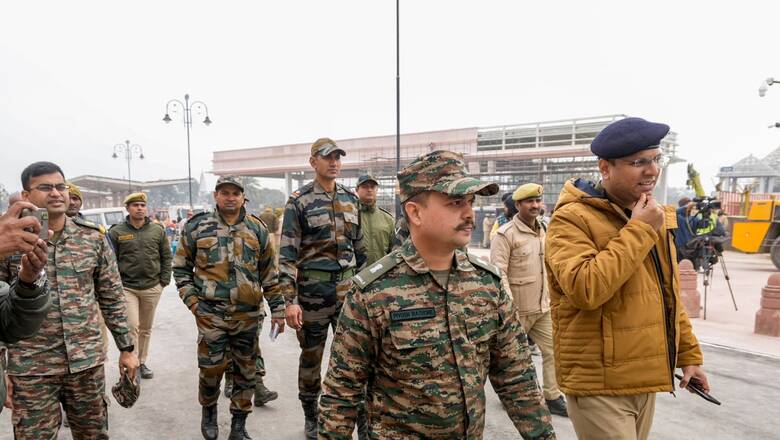
views
From crackdown on cyber criminals seeking to scam Lord Ram devotees to keeping a watch on incendiary social media posts and videos, central government agencies have been working overtime to ensure the Ram Temple consecration ceremony on January 22 is smooth affair in Ayodhya and beyond.
High-level sources told News18 that the agencies have already acted against some cybercriminals running fake donation scams and VIP entry frauds. According to officials, three kinds of rackets have come to light:
QR Code Fraud: Groups have been busted for running fake donation rackets and asking people to scan a particular QR code to send money. The QR codes led to bank accounts of the scammers instead of the Ram Temple trust.
Entry Fraud: The agencies detected malicious WhatsApp messages doing the rounds, promising entry to the Ram Mandir. The messages asked users to download a file which surreptitiously scrapped the users’ financial information, location, photos and videos to be used later in extortion scams.
Laddoos Fraud: Websites were found to be offering prasad and laddoos, claiming these would come from the Ram Mandir in Ayodhya. The laddoos were either being sold or were being offered for free but with a delivery charge.
Central agencies are also concerned about social media content that could stoke communal tensions on the historic occasion. Sources said many posts aiming to provoke a particular community have been blocked and others under scrutiny shall be taken down soon.
A top government official involved in cyber investigations revealed that recent intelligence analysis identified the spread of such viral content on platforms like X, Facebook, and Instagram. Specifically, videos circulating online have been scrutinized and found to have the potential to incite violence, the official said.
Following an in-depth technical analysis and fact-checking process, it has been determined that these videos contain false information about the Ram Mandir in Ayodhya, posing a threat of harm and misinformation, officials said. “The widespread attention these videos have garnered raises significant concerns about their content and the potential to incite public order issues.”
Recommendations have been made to block the websites and content under Section 69A of the IT Act, 2000. Action has also been initiated to block similar fake content circulating on X (formerly Twitter) and Facebook, sources said.




















Comments
0 comment